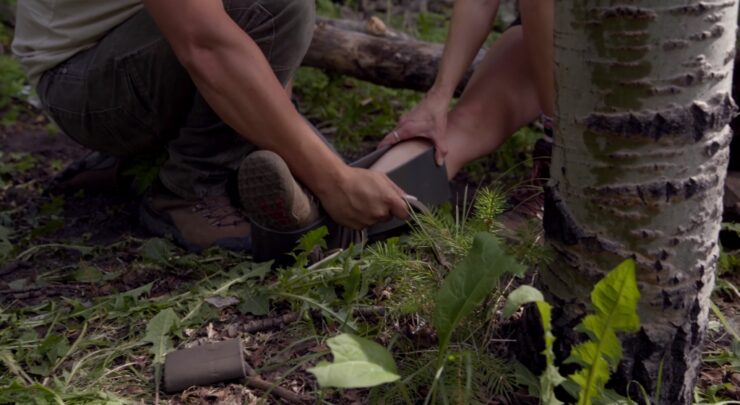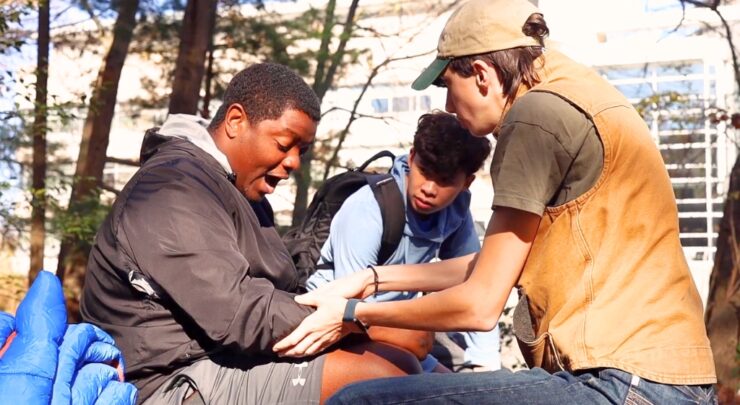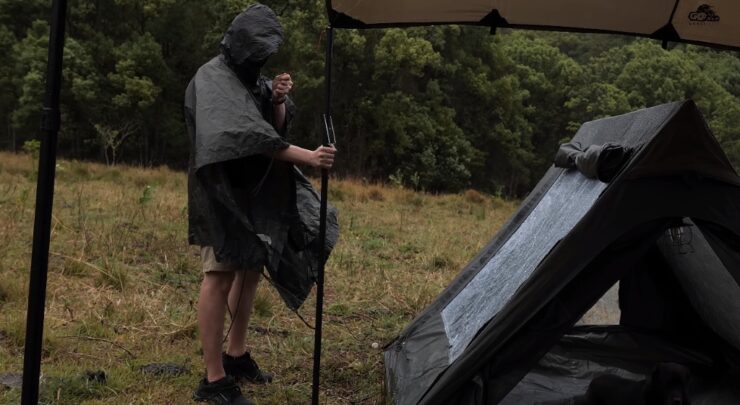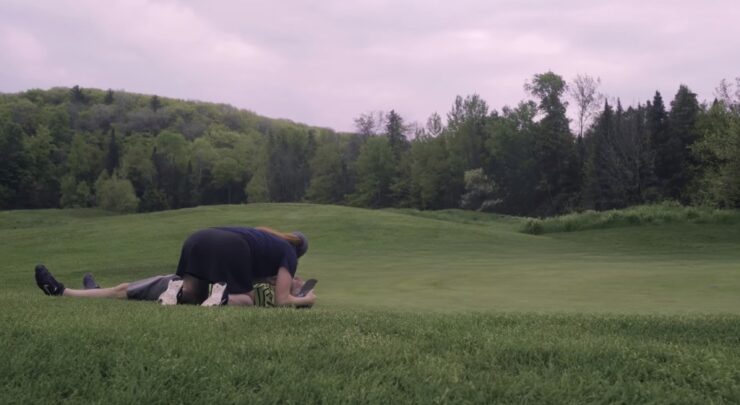Picture this: you’re out in the great outdoors, surrounded by nature’s beauty, and the serenity of the wilderness fills the air. But in the blink of an eye, things can take a turn.
That’s why campers must be prepared for any curveball that Mother Nature might throw your way. In this guide, we’ll delve into the must-knows of CPR and First Aid to ensure your outdoor adventures are not only fun but safe.
Why Campers Need CPR and First Aid Skills

When you’re miles away from the nearest hospital, and a sudden emergency strikes, you don’t want to be left helpless. Common outdoor risks like falls burns, and insect stings can escalate quickly.
That’s when CPR and First Aid skills become your lifeline. Having the knowledge and tools to respond swiftly can make the difference between a minor mishap and a major catastrophe.
That’s why knowledge about CPR and first aid is not recommended but is actually a must for everyone who wants to be safe. To take the first steps, you need to find out more info about first aid.
CPR Basics for Campers
CPR, or Cardio-Pulmonary Resuscitation, is like the ultimate outdoor backup plan. It’s your way of jump-starting a heart that’s decided to take a break. There’s a common misconception that CPR has to be all mouth-to-mouth, but times have changed.
These days, hands-on CPR is often the way to go. Push hard and fast on the chest to the beat of ‘Stayin’ Alive’ (the song, not the situation).
First Aid Essentials for Campers

Let’s delve into the contents of this magical box, ensuring you’re well-prepared for the unexpected.
- Bandages and Gauze: These versatile supplies are your first line of defense when dealing with wounds. They serve the dual purpose of covering injuries and maintaining a clean, sterile environment to promote healing. Whether it’s a small cut or a larger abrasion, bandages, and gauze are there to assist.
- Antiseptic Wipes: Nasty germs lurking in the wild can quickly turn a minor wound into a major problem. Antiseptic wipes are your go-to warriors in the battle against infection. They clean and disinfect wounds, reducing the risk of complications and ensuring your healing process is smooth.
- Scissors and Tweezers: In the world of camping, encounters with thorns, splinters, and unwanted debris are not uncommon. Scissors and tweezers are your handy tools for swiftly and safely removing foreign objects from wounds or skin. They’re your trusty assistants when precision is crucial.
- Pain Relievers: Headaches and camping? Not an ideal combination. Whether it’s a result of the altitude, long hikes, or other outdoor activities, pain relievers are your quick remedy to alleviate discomfort. A little relief can make a big difference in your overall camping experience.
- Adhesive Tape: Think of adhesive tape as your outdoor duct tape. It’s not just for securing bandages but also for improvising solutions in unexpected situations. From patching up torn equipment to securing makeshift splints, adhesive tape is your MacGyver tool in the wilderness.
- Emergency Blanket: Nature’s unpredictability can throw a curveball your way, and when the temperature drops unexpectedly, you’ll be grateful for the emergency blanket. It’s a lightweight and compact lifesaver that provides warmth and protection against the elements, ensuring you can weather the storm comfortably.
- Instant Cold Packs: When things heat up – whether due to a burn or an injury – instant cold packs are your cooling companions. They offer immediate relief by reducing swelling and soothing pain. With these packs in your kit, you can chill out even when the outdoor environment becomes scorching.
Your first aid kit isn’t just a collection of items; it’s a versatile and reliable resource for addressing a variety of camping-related health concerns. When you’re exploring the great outdoors, having these essential supplies on hand can mean the difference between a minor inconvenience and a full-blown crisis.
So, make sure your trusty sidekick is well-stocked and ready for action as you embark on your outdoor adventures.
Wilderness First Aid Training
Sure, you can Google your way through a crisis, but there’s no substitute for proper training. Wilderness First Aid courses are like boot camps for campers, equipping you with the skills to handle outdoor emergencies like a pro. Find a reputable course near you and remember, it’s not just about saving others; it’s about saving yourself too.
Prevention and Safety Tips

Let’s be clear: an ounce of prevention is worth a pound of cure. So, when you’re setting up camp, think safety first. Here are some nuggets of wisdom:
- Campsite Safety: Avoid setting up your tent under that precarious-looking branch or on top of an anthill.
- Hydration and Nutrition: Water is your best friend, and your campfire-cooked meals should be delicious, not dodgy.
- Wildlife Awareness: Know your surroundings. If you’re camping in bear country, your picnic basket is not safe!
Dealing with Specific Camping Emergencies
Okay, you’ve got your CPR and first aid basics down, but what about those unique outdoor threats? Let’s break them down:
- Snake Bites: Stay calm and immobilize the bitten area. Don’t try to suck out the venom; it’s not a Hollywood movie.
- Hypothermia and Frostbite: Layer up and stay warm. And no, sticking your frozen fingers over the campfire is not the answer.
- Allergic Reactions and Anaphylaxis: If you or a fellow camper has a severe allergy, make sure an epinephrine auto-injector is within reach.
How to Signal for Help in the Wilderness?
When you’re out in the wild, shouting for help might not cut it. That’s why you need alternative ways to signal for assistance:
- Communication Devices: A satellite phone or emergency locator can be a game-changer.
- Whistles and Mirrors: Think of them as the flare guns of the non-Hollywood world.
- Wilderness Emergency Plan: It’s like your campfire, you hope you won’t need it, but it’s reassuring to have.
Conclusion
We’ve covered a lot of ground, from CPR basics to wilderness first aid training, and everything in between. Your camping adventures should be filled with memories, not emergencies. So, be prepared, stay safe, and remember, the great outdoors are fantastic, but safety is paramount.

